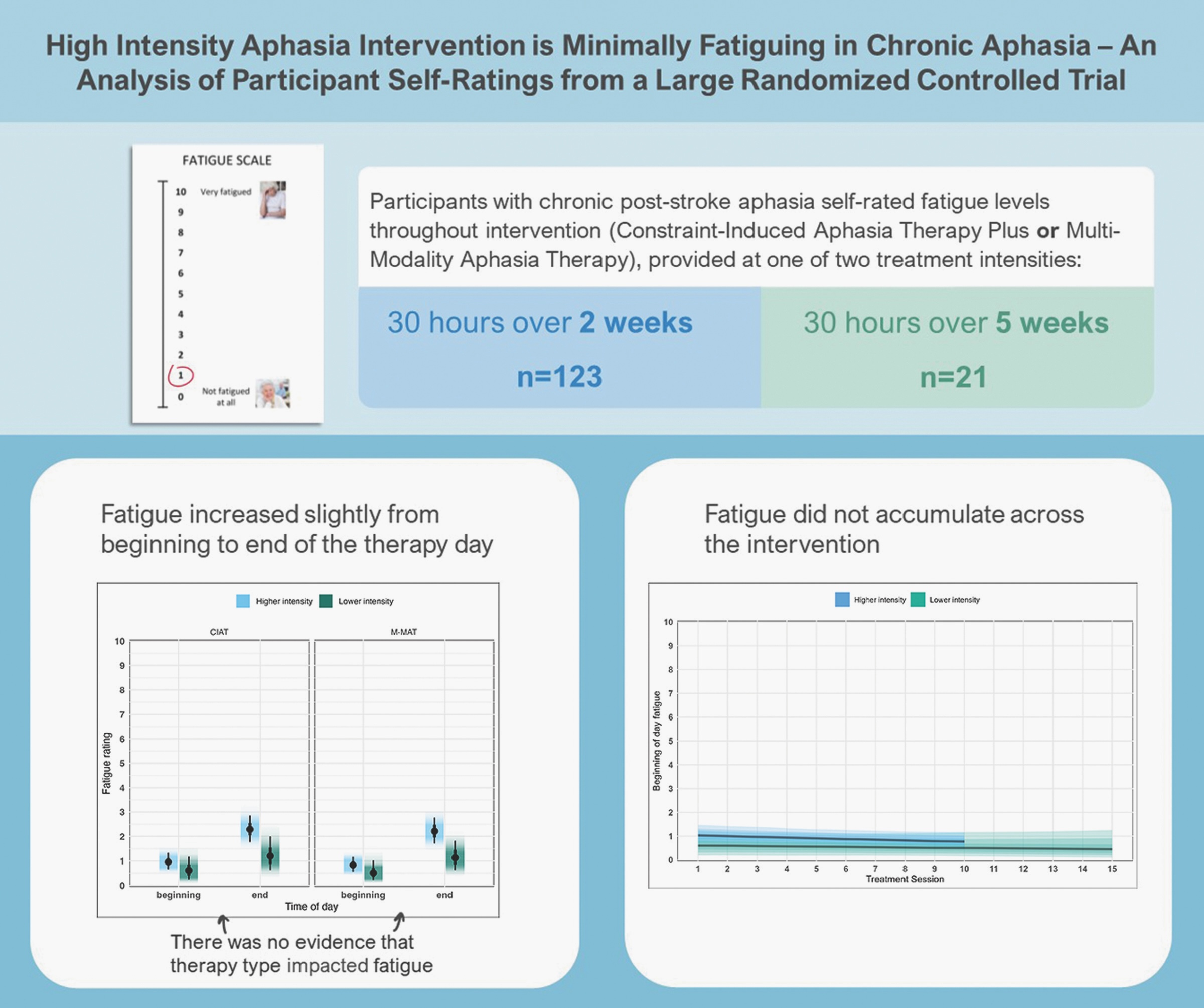Participants with chronic post-stroke aphasia self-rated fatigue levels throughout intervention (Constraint-Induced Aphasia Therapy Plus or Multi-Modality Aphasia Therapy), provided at one of two treatment intensities: 30 hours over 2 weeks (n=123) vs 5 weeks (n=21). Overall, treatment was minimally fatiguing for participants.

High-intensity therapy is recommended in current treatment guidelines for chronic poststroke aphasia, but we don't know how fatiguing it is for stroke survivors with aphasia. We looked at self-rated fatigue in 173 people with chronic aphasia collected during a previously published large randomized controlled trial of 2 treatments: constraint-induced aphasia therapy plus and multi-modality aphasia therapy. Therapy was provided at either higher intensity (30 hours in 2 weeks) or lower intensity (30 hours in 5 weeks). Participants rated their fatigue twice a day on a scale of 0–10. Data were analyzed using Bayesian ordinal multilevel models.
Intensive therapy did not significantly increase fatigue levels in chronic aphasia patients enrolled in the COMPARE trial. Fatigue levels remained stable throughout the intervention, suggesting that fatigue does not pose a barrier to high-intensity treatment for stroke survivors with chronic aphasia. These findings support the feasibility and safety of intensive therapy approaches in this population.